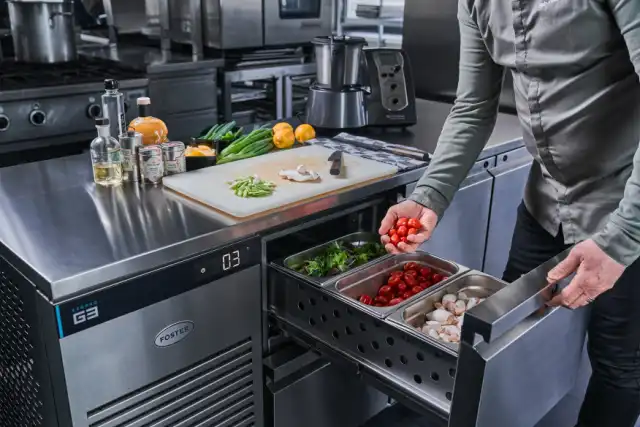Running a large-scale commercial kitchen requires careful planning, efficiency, and reliable tools that can handle high production volumes. Whether operating a hotel, catering facility, or institutional kitchen, every piece of commercial kitchen equipment must be designed for performance, durability, and safety. Selecting the right combination of appliances and systems improves workflow, reduces downtime, and ensures consistent quality across all operations.
The Role of Commercial Kitchen Equipment in Large-Scale Operations
Large-scale kitchens are built to serve hundreds or even thousands of meals each day. Unlike smaller restaurant kitchens, these facilities require specialized commercial kitchen equipment that can handle bulk cooking, storage, and cleaning without slowing down the staff. Every appliance contributes to the overall efficiency of the kitchen and ensures consistent food quality.
Essential Cooking Equipment
Cooking appliances are at the center of any large-scale kitchen. Heavy-duty ranges, convection ovens, and combi ovens provide the versatility needed to prepare large quantities of food quickly and evenly. Combi ovens allow chefs to use both steam and convection heat to cook meals efficiently while preserving flavor and nutrients. Tilting skillets and braising pans make it possible to cook sauces, stews, and other dishes in a single unit, reducing the need for multiple pans. Industrial fryers and griddles maintain consistent temperatures for continuous frying and grilling, ensuring meals are cooked properly and on schedule. Investing in high-performance cooking equipment improves productivity and maintains quality across all orders.
Refrigeration and Storage Solutions
Proper refrigeration and storage are critical in high-volume kitchens. Walk-in coolers, blast chillers, and commercial freezers provide sufficient space and precise temperature control for storing ingredients and prepared foods. Walk-in units offer ample room to organize inventory while maintaining safety standards. Blast chillers quickly reduce food temperature to safe levels, preserving freshness and quality. Refrigerated prep tables keep ingredients within reach during meal preparation, improving efficiency and consistency. Modern refrigeration equipment often incorporates energy-saving technology and digital temperature monitoring to prevent spoilage and reduce operational costs.
Food Preparation Equipment
Large-scale kitchens rely on efficient food preparation tools to manage labor and maintain speed. Heavy-duty mixers, food processors, and slicers allow staff to prepare large batches of dough, sauces, and other ingredients consistently and quickly. Planetary mixers handle substantial quantities of dough or batter, while commercial food processors reduce the time needed for chopping, shredding, or pureeing. Vegetable cutters and dicers provide uniform results, improving both speed and safety. Well-maintained preparation equipment reduces labor costs and allows kitchen staff to focus on quality and presentation.
Sanitation and Dishwashing Systems
Cleanliness is a top priority in any commercial kitchen. High-capacity dishwashers, sanitizing sinks, and waste management systems keep the kitchen clean while handling hundreds of dishes each hour. Conveyor-style dishwashers ensure thorough cleaning and maintain a steady workflow, while automated sanitizing systems reduce manual labor and water usage. Modern equipment includes features to monitor temperature and sanitation, helping kitchens comply with health standards and protect customers.
Technology and Energy Efficiency
Technology is transforming how large-scale kitchens operate. Smart commercial kitchen equipment allows managers to track performance, schedule maintenance, and monitor energy consumption. Automated ovens, cooking systems, and IoT-enabled devices improve productivity while reducing the risk of equipment failure. Energy-efficient appliances help kitchens lower operational costs and support sustainability goals, which are increasingly important in the modern foodservice industry.
Selecting the right commercial kitchen equipment is essential for the success of large-scale operations. From high-capacity cooking appliances and industrial refrigeration to advanced food preparation and sanitation systems, every component contributes to efficiency, consistency, and performance. Investing in reliable, energy-efficient equipment ensures that large kitchens can maintain high-quality output, meet growing demand, and operate smoothly. Thoughtful equipment selection, regular maintenance, and careful workflow planning are the keys to achieving a productive and efficient kitchen environment.


